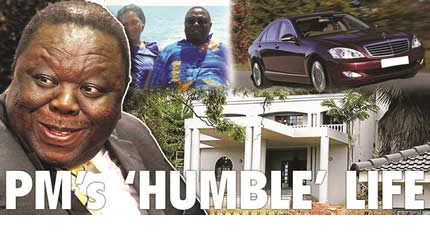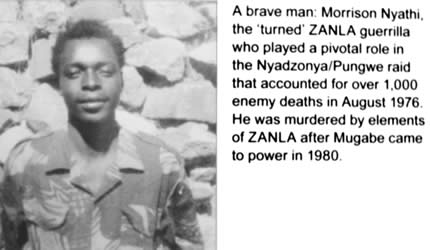Conference must deal with electile dysfunction
Dell, unite behind a common cause; defend the votes of its elected leaders and steamroll into opposition territory to grab more votes and even seats.
All this was made possible through unity of purpose that spawned sheer force of numbers that always left the opposition gasping for breath.
Well, in March 2008 this juggernaut nearly came unstuck as Zanu-PF suffered something akin to ‘electile dysfunction’ when it mattered most.
The party could not rise to the occasion, so to speak. It lost its parliamentary majority and forced its President and First Secretary R. G. Mugabe into a runoff poll for the first time since 1980. And that against one of the most uninspiring opponents.
Granted, the west’s economic sanctions regime was really biting and the economy was screaming to high heaven.
Things were bad, bad, bad but through it all the majority of people were not fooled. They kept faith in Zanu-PF as they understood where and why the rain began beating them. This is why Zanu-PF got an edge over the MDC-T in the popular harmonised poll.
Though the crunching sanctions had a lot to do with voting patterns over the past 11 years, Zanu-PF was in a position to shake off the MDC-T challenge in 2008 but two issues cost the party outright victory.
The first, and to me the most grave one was the imposition of candidates by the Politburo and other higher echelons of the party at the expense of what the grassroots wanted.
This happened in several constituencies where Zanu-PF fielded two candidates who ended up splitting the vote in favour of the MDC-T.
The second and equally grave one was the sheer absence of principles among some party members who voted Zanu-PF for the council, House of Assembly and Senate, then Simba Makoni for president.
This self-defeating attitude came about because some Zanu-PF leaders openly told voters in their constituencies to vote for a Zanu-PF councillor, House of Assembly rep and/or senator and then Simba Makoni for president.
And in the end some Zanu-PF legislators got higher votes than President Mugabe in their constituencies as the President’s vote was split with Simba Makoni nationally.
One would have thought Zanu-PF had learnt its lesson after that near miss of March 29 2008. But alas, events proved otherwise this year during elections to chose a speaker for the House of Assembly after the nullification of Lovemore Moyo’s election in the wake of a court challenge by Professor Jonathan Moyo. Two Zanu-PF legislators secretly voted for Lovemore Moyo who beat Zanu-PF’s Simon Khaya Moyo.
While what the two Zanu-PF MPs did was deplorable, indications were that they were protesting the imposition of Simon Khaya Moyo over other aspiring contenders.
Zanu-PF Chief Whip Joram Gumbo, and Women’s League boss Oppah Muchinguri were reportedly interested in the Speaker’s post with the former having done extensive groundwork but were shunted aside as the Politburo wanted Cde Moyo, the party’s most senior member out of government, to land the post.
Khaya Moyo’s imposition spawned disgruntlement in party ranks that saw VP Mujuru read the riot act to Zanu-PF MPs whom she threatened with expulsion from the party if they did not vote for the national chairman.
Yet all that wasn’t really called for, what the party should have done is hold primaries pitting Cdes Khaya Moyo, Oppah Muchinguri and Joram Gumbo with the winner taking on Lovemore Moyo.
I hope this will be standard practice in the run-up to next year’s poll.
Zanu-PF can ill-afford the self-defeating practice of kicking the ball into the wild instead of the nets (bhora musango or protest voting). There is urgent need to remove the cancer that sees some leaders say no self-respecting Zanu-PF cadre should challenge another cadre with a higher rank in party primaries.
Let the primaries be real primaries where one’s standing in the party is not an issue but one’s ideas and appeal to the electorate so that voters get the candidates they want.
This is the only way to beat the scourge of self-defeating protest votes like we saw on March 29 2008 and during Lovemore Moyo’s re-election.
Be that as it may, the paucity of principles exhibited by some party cadres should worry the leadership because in a situation like the one that pitted Lovemore Moyo against Khaya Moyo, votes should have been cast on principle not personalities.
One must vote for the party not its representative which is what happens in systems of proportional representation where a voter does not even know who the party will nominate to be his/her representative in parliament.
Many hope the 12th Annual National Peoples Conference will afford Zanu-PF the opportunity to look at itself critically, warts and all and ensure that going into next year, the ghost of 2008 has been well and truly exorcised.
And this calls for cleansing party ranks of dubious characters and putting an end to the cancer of imposing candidates. Zanu-PF can ill-afford the electile dysfunction of 2008, that necessitated inviting other partners into what should have been a monogamous union.








Comments